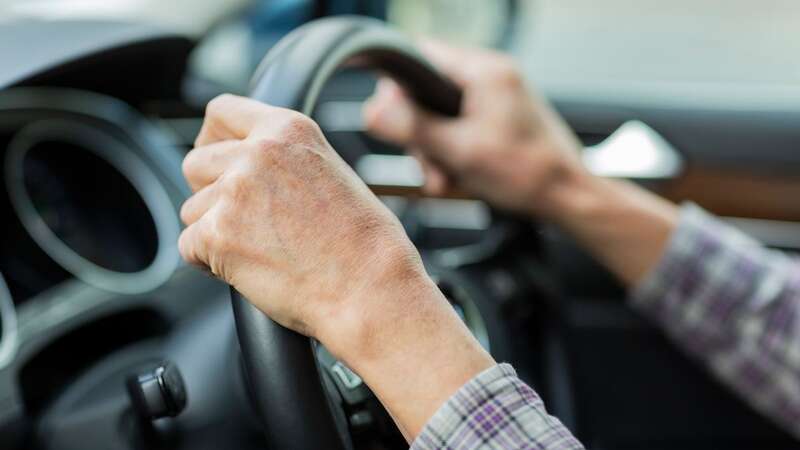Motorists could face hefty fines and legal consequences if they fail to report certain changes to the DVLA, an expert has warned. Chris Richards from SimplyQuote said drivers were required to inform the DVLA of seven critical updates to avoid severe penalties and points against their driving record.
The Driver and Vehicle Licensing Agency (DVLA) in the UK requires notification of various important updates, such as common medical conditions and changes in address or name. The repercussions for failing to comply are severe, potentially costing drivers up to £1,000 and adding six points to their licence.
Additionally, if a driver is involved in an accident without having reported the necessary information, they could face prosecution. In addition to notifying the DVLA, not updating your insurance provider with all necessary information could render your policy invalid, resulting in significant repercussions.
Motorists must ensure that the UK’s Driver and Vehicle Licensing Agency is kept informed of any changes. Car owners are obligated to inform the DVLA of certain details, and failing to do so could lead to substantial fines or even legal action.
It might seem trivial to overlook things like a change of address, but overlooking such updates can lead to serious financial consequences. As the registered keeper of a vehicle, you bear the responsibility for official communications with the police, the DVLA, and your insurance provider. To verify whether you need to contact the DVLA about any changes, visit its website.
 Oppenheimer's nuclear bomb 'got attention of aliens worried we'll destroy Earth'
Oppenheimer's nuclear bomb 'got attention of aliens worried we'll destroy Earth'
SimplyQuote.co.uk said that failing to disclose the following seven pieces of information could incur significant penalties.
Changes drivers must tell the DVLA
Disclose driver details
Any individual registered by the DVLA as the owner of a vehicle implicated in an offence will be charged with failing to disclose driver details if they do not identify the driver at the time of the offence. The consequence for this failure includes receiving six points on the licence and a potential fine of up to £1,000.
Notification of eyesight changes
Drivers are required to notify the DVLA of any deterioration in their eyesight or if they suffer from visual impairments such as cataracts or glaucoma. According to DVLA regulations, drivers must be capable of reading a number plate from 20 metres; assistance from glasses or contact lenses is permissible, but these must be worn at all times while driving.
Regrettably, failing to meet the minimum eyesight requirements could result in a fine of up to £1,000 and three penalty points on their licence if they are found driving. Furthermore, drivers with inadequate vision may have their licences immediately revoked by the police if deemed a hazard on the road.
Disclosure of medical conditions
Failing to report a medical condition could lead to a fine of up to £1,000 and drivers involved in accidents risk prosecution. The DVLA maintains a comprehensive list of over 110 conditions that could impair driving abilities, which some motorists may not be fully aware of.
Common conditions requiring disclosure include diabetes, vertigo, and sleep apnoea, among others listed on the DVLA website. In severe cases, the DVLA mandates that drivers must surrender their licence if they do not meet the necessary driving standards.
Reporting name or gender changes
 Scobie admits to 'long-term friendships' with sources in new interview
Scobie admits to 'long-term friendships' with sources in new interview
Drivers who do not notify the DVLA of a legal change in name or gender could face a £1,000 fine. It's particularly important for newlyweds to be aware that neglecting to inform the DVLA constitutes a legal violation, even though the process itself is free. To ensure compliance, drivers should return their old licence along with any relevant supporting documents, so that both their driving licence and vehicle registration are updated accurately.
Declaring a vehicle off-road with SORN
All vehicles must be insured and taxed unless the owner applies for a Statutory Off-Road Notice (SORN) when a car is not in use. Vehicle keepers planning to put their car off the road for an extended period must declare it as SORN to avoid unnecessary taxation.
Once declared SORN, the vehicle must not be used and should be stored on private property, such as a driveway or garage; keeping it on a public road is illegal. If a SORN vehicle is driven for any reason other than travelling to a pre-arranged MOT or testing appointment, the owner risks prosecution and a fine of up to £2,500.
Vehicle modifications
Drivers are required to register significant modifications to their vehicle with the DVLA, updating their V5C registration and providing necessary evidence. Modifications that must be reported include changes to the chassis or body shell, alterations to the exhaust system or number plate, or if the vehicle has been wrapped in a different colour.
The DVLA may request an inspection of the vehicle to verify its roadworthiness following these changes. If it is necessary to conduct tests and the vehicle fails, it may be prohibited from being used on the roads until corrective actions are taken. Additionally, owners may face fines or even a court summons if the modifications do not meet regulatory standards.
Updating address changes
It is essential for drivers to inform the DVLA of any address changes, temporary or permanent, to ensure that all correspondence reaches the vehicle owner. Both the vehicle logbook and driving licence need to be current, and address updates can be conveniently made online. Failing to notify the DVLA of an address change can result in a fine of up to £1,000 for the vehicle owner.
Read more similar news:
Comments:
comments powered by Disqus































